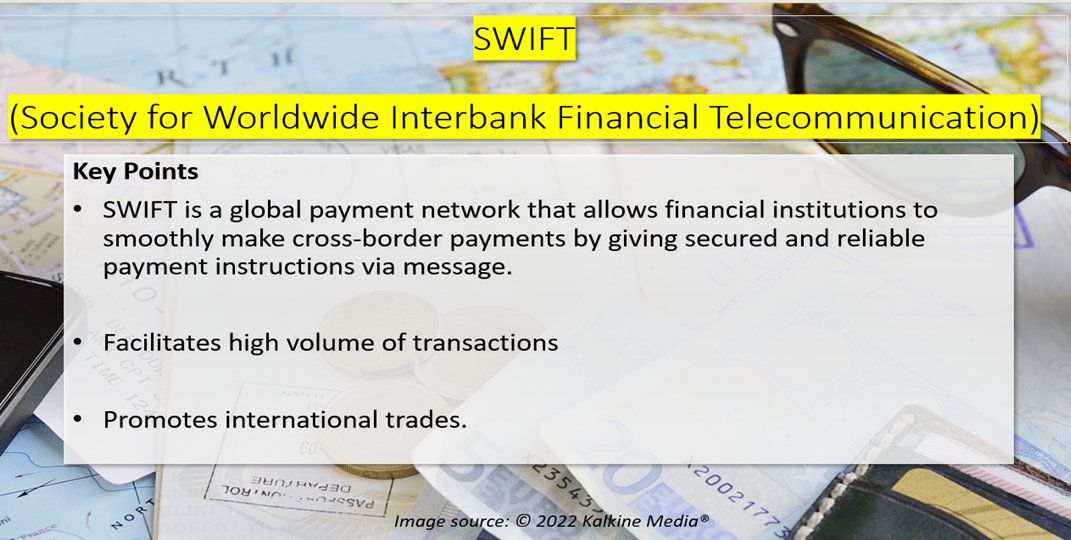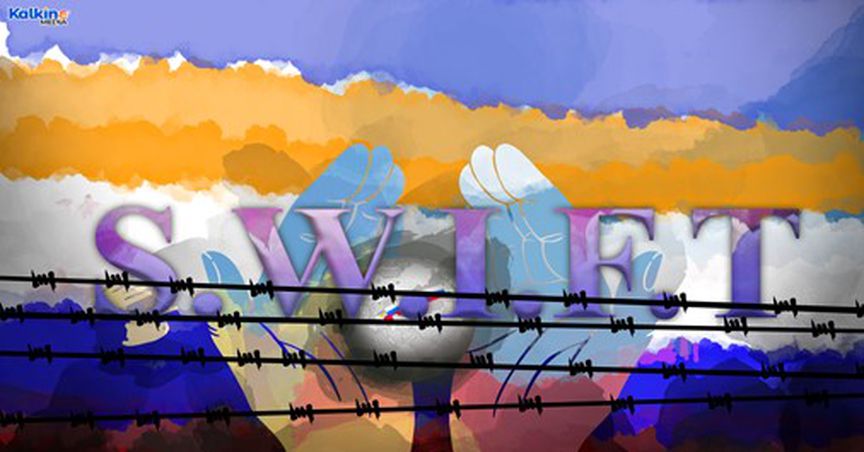Highlights
- The Russian invasion of Ukraine has brought the SWIFT, which stands for ‘Society for Worldwide Interbank Financial Telecommunication’, in the limelight for investors and other market enthusiasts.
- The United States, along with the European Union (EU) and other major countries, have agreed to impose new sanctions on Russia in an attempt to dissuade Russian President Vladimir Putin from attacking Ukraine.
- The latest stance includes cutting off some major Russian banks from the SWIFT network.
The Russian invasion of Ukraine has brought the SWIFT, which stands for ‘Society for Worldwide Interbank Financial Telecommunication’, in the limelight for investors and other market enthusiasts.
The United States, along with the European Union (EU) and other major countries, have agreed to impose new sanctions on Russia in an attempt to dissuade Russian President Vladimir Putin from attacking Ukraine. The latest stance includes cutting off some major Russian banks from the SWIFT network.
But what is the SWIFT system and how can the move involving it impact Russia’s financial ecosystem? Also, how can banning Russia turn out for the global economy?
Let us find out.
What is the SWIFT system?
The SWIFT system is a global payment network that allows connected financial institutions to smoothly make cross-border payments by giving secured and reliable payment instructions via message.
Also read: Can Russia’s attack on Ukraine impact Canada's economy & trade?
Founded in the 1970s, this payment system facilitates banks to smoothly process a high volume of transactions, thus, promoting international trades.

Why and how is banning Russia from the SWIFT ban important?
Keeping Russia out the wide SWIFT network is expected to prevent its financial institutions from dealing internationally and limit its financial capabilities.
The SWIFT ban can also make exporting and importing from the country nearly impossible, resulting in an economic stress that can, in turn, pressure the authorities to reconsider actions against Ukraine.
Also read: Raytheon (RTX) & Lockheed (LMT): Why are the 2 defense stocks trending?
Banks in Russia can switch to other options, such as emails, to transact with countries that have not placed sanctions against them. A point to keep in mind here, however, is that these alternatives are comparatively less efficient and secure than SWIFT, which could result in lower transactions volumes and higher costs for Russian banks.
How can banning Russia from SWIFT impact the global economy?
The move to cut off a score of Russian banks from the SWIFT network on Saturday, February 26, was reportedly aimed at isolating its economy and financial ecosystem as a penalty for its “unwarranted” actions against Ukraine.
If this collective step makes international trade risky and costly for Russia and strain its financial capacities, some market analysts believe that this could push Russia to a place where it is less dependent on global partners.
Some experts also noted that countries that are already battling soaring energy prices could face more difficulties if trading with Russia for its energy supply becomes an issue.
Also read: Which sectors can be impacted as Russia attacks Ukraine?




